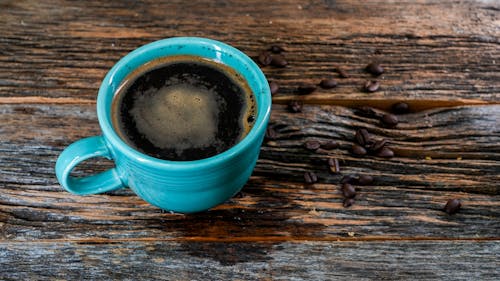Bolivian Coca Tea: Tradition, Energy, and Controversy in 2025
Bolivian Coca Tea: An Andean Tradition in 2025
Coca tea, or mate de coca, is a traditional herbal tea made from the leaves of the coca plant, native to the Andes Mountains in South America, particularly in Bolivia, Peru, Colombia, and Argentina. For centuries, indigenous Andean cultures have revered the coca plant for its medicinal and energizing properties. In 2025, coca tea continues to be a significant part of Bolivian culture, deeply intertwined with its history, traditions, and daily life. It's more than just a beverage; it's a symbol of national identity and a connection to the past.
The preparation of coca tea involves steeping coca leaves in hot water, similar to how other herbal teas are made. The resulting brew has a mild, slightly bitter taste, often compared to green tea. While the coca plant is also the source of cocaine, coca tea contains only trace amounts of the alkaloid, far too little to produce any psychoactive effects. Instead, it offers a gentle stimulant effect, similar to coffee or tea, due to the presence of other alkaloids.
In Bolivia, coca tea is readily available in homes, markets, and cafes. It's commonly consumed in the morning to kickstart the day, after meals to aid digestion, or as a remedy for altitude sickness. Tourists visiting the high-altitude regions of the Andes are often encouraged to drink coca tea to alleviate the symptoms of soroche, such as headaches, nausea, and fatigue. The tea's mild stimulant properties can help improve oxygen absorption and reduce the discomfort associated with high altitudes.

The Benefits of Coca Tea: Energy and Wellness
Beyond its cultural significance, coca tea is believed to offer several health benefits. While scientific research is still ongoing, traditional uses and anecdotal evidence suggest that coca tea can provide a range of positive effects. In 2025, many people continue to drink coca tea for its potential to boost energy, improve focus, and promote overall well-being.
- Energy Boost: Coca tea contains alkaloids that act as mild stimulants, providing a gentle and sustained energy boost without the jitters or crash associated with caffeine.
- Altitude Sickness Relief: It helps alleviate the symptoms of altitude sickness by improving oxygen absorption and reducing headaches, nausea, and fatigue.
- Digestive Aid: Coca tea is traditionally used to aid digestion and relieve stomach discomfort.
- Appetite Suppressant: Some people use coca tea to suppress appetite and manage weight.
- Mood Enhancement: The alkaloids in coca tea may have mood-boosting effects, helping to reduce stress and improve overall well-being.
It's important to note that the effects of coca tea can vary from person to person. Factors such as individual metabolism, dosage, and overall health can influence the tea's impact. While coca tea is generally considered safe for most people, it's always a good idea to consult with a healthcare professional before incorporating it into your daily routine, especially if you have any underlying health conditions or are taking medications.
In 2025, various companies are exploring innovative ways to incorporate coca into wellness products, such as energy bars and supplements. However, it's crucial to ensure that these products comply with local regulations and international laws regarding coca cultivation and trade.

The Controversy: Coca vs. Cocaine
The primary controversy surrounding coca tea stems from its connection to cocaine. Both are derived from the coca plant, leading to legal restrictions and international scrutiny. However, it's crucial to understand the fundamental differences between coca tea and cocaine. Coca tea contains only trace amounts of cocaine alkaloids, far too little to produce any psychoactive effects or lead to addiction. Cocaine, on the other hand, is a highly concentrated and processed form of the coca plant, with significantly higher levels of the addictive alkaloid.
Despite these differences, the international classification of the coca leaf as a Schedule I drug under the Single Convention on Narcotic Drugs of 1961 has created significant challenges for countries like Bolivia, where coca cultivation and consumption are deeply ingrained in the culture. In 2025, the debate over the legal status of coca continues, with Bolivia advocating for the recognition of the coca leaf's traditional and medicinal uses.
The Bolivian government, under the leadership of President Luis Arce, has actively campaigned for the delisting of the coca leaf from the Schedule I list. They argue that the traditional use of coca is distinct from the production of cocaine and that the international community should respect the cultural practices of Andean nations. This campaign has faced resistance from some countries that view any form of coca cultivation as a potential source of cocaine production.
.jpg?v=1722503200)
Coca Tea in 2025: Legal Status and Global Perspectives
In 2025, the legal status of coca tea varies significantly around the world. In Bolivia and Peru, coca tea is legal and widely consumed. The governments of these countries actively promote its traditional uses and defend its cultural significance. However, in many other countries, coca tea is either illegal or subject to strict regulations due to the international classification of the coca leaf.
The following table summarizes the legal status of coca tea in selected countries as of 2025:
| Country | Legal Status |
| Bolivia | Legal |
| Peru | Legal |
| United States | Illegal (unless de-cocainized) |
| European Union | Generally illegal |
| Canada | Illegal |
In countries where coca tea is illegal, possession, sale, and import can result in legal penalties. However, some companies have found ways to circumvent these restrictions by selling de-cocainized coca products, which have had the cocaine alkaloids removed. These products are legal in some countries, but they may not offer the same benefits as traditional coca tea.
The global perspective on coca tea is gradually evolving as more people become aware of its cultural significance and potential health benefits. Some researchers and advocates are calling for a re-evaluation of the international classification of the coca leaf, arguing that it unfairly penalizes Andean communities and hinders the development of sustainable coca-based industries.

Embracing the Tradition: Experiencing Coca Tea Responsibly
For those interested in experiencing coca tea, it's essential to do so responsibly and with respect for the cultural traditions of the Andes. If you're traveling to Bolivia or Peru, be sure to try coca tea in its traditional form, prepared with fresh coca leaves. You can find it in most cafes, markets, and hotels. When purchasing coca tea or coca-based products, make sure to buy from reputable sources that support sustainable and ethical practices.
If you're unable to travel to the Andes, you may be able to find de-cocainized coca products online or in specialty stores. However, be aware that these products may not offer the same benefits as traditional coca tea. Always check the legal status of coca tea in your country before purchasing or consuming it.
In 2025, the future of coca tea remains uncertain. The ongoing debate over its legal status and the challenges of balancing tradition with international regulations will continue to shape its trajectory. However, one thing is clear: coca tea will continue to be an important part of Bolivian culture and a symbol of the enduring spirit of the Andes. As consumers, we can support the sustainable and ethical production of coca tea by making informed choices and advocating for policies that respect the cultural heritage of Andean communities. Tools like Fair Trade certifications and apps that verify product sourcing can help consumers make responsible purchasing decisions.

So, raise a cup to the enduring spirit of coca tea, and may its future be one of understanding and respect!
-Hot Water
Comments
Post a Comment